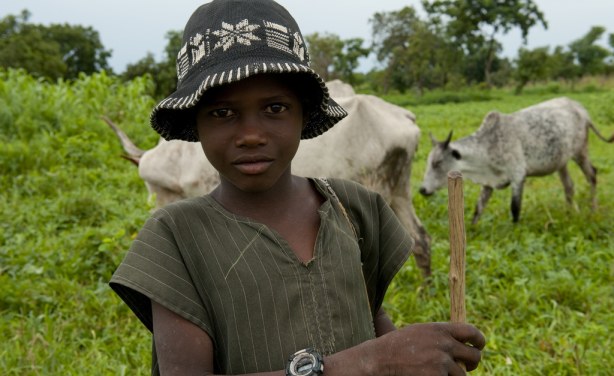
Africa has become a better place for children in recent years, but more investments are needed in health and education to further improve the lives of African children, according to a new study of the African Child Policy Forum.
The African Report on Child Well-being 2013, says conditions for children on the African continent improved in the last five years, mostly because of recent achievements in increasing the survival rate of children, reducing infant mortality and improved access to water and sanitation.
Mauritius, South Africa and Tunisia top the list of the 52 investigated African countries in the report launched by the African Child Policy Forum. They put in place national laws that protect children from violence and maltreatment. That resulted in better outcomes for children in those countries.
But executive director of the African Child Policy Forum Theophane Nikyeme says that despite the improvements, the continent is still facing serious challenges when it comes to providing basic needs for children.
“What they need is an environment in which they can grow in freedom. Where their basic needs will be satisfied,” said Nikyeme. “Where they can go to school and get proper education. They could go to a health service not from their home, not having to go through kilometers to reach their clinic. Being able to go to school all the way to university if they want to do so.”
Many children in Africa still die from preventable diseases such as malaria, diarrhea and malnutrition. While African governments committed to spend 15 percent of their budget on health, on average only 11 percent is spent.
The worst places for children to grow up are unstable and fragile countries such as the Central African Republic, Chad and Eritrea.
The report focuses on 44 indicators such as a government’s provision for children’s basic needs and the participation of children in decisions that affect them.
Countries with low GDP such as Rwanda and Malawi scored higher than countries with a relatively higher GDP such as Namibia and Equatorial Guinea.
Nikyeme says the report shows that a child’s well-being does not necessarily depend on a country’s wealth, but on the government’s commitment:
“What we are advocating for, is for governments, when they ratify a law or a treaty at the international level or regional level, they should go back to harmonize it to the national laws. But this is not happening,” said Nikyeme.
The first report on child well-being in Africa was done in 2008. While the overall well-being of children seems to have improved, the report calls upon African governments to increase investments in education, health and social protection. The African Child Forum Policy also urges African countries to enhance accountability and good governance so that the recent economic growth on the continent should translate into concrete results.
Somalia, South Sudan and Western Sahara were not included in the report because of a lack of reliable data.
Source: All Africa

